A vehicle can lose power when it's warm, if it is not in good operating condition or if one or more of the car's components is malfunctioning.
Below we go over some of the most common car problems that would cause power loss.
Why Does My Car Lose Power When Warm Or Hot?
Cars are complicated machines that can have various issues arise within them; however, thankfully, if you're on the ball, you can spot problems quickly before they get out of hand.
If you're noticing that your car is losing power when it's warm, it may be due to various factors―a malfunction in the sensors, a bad fuel pump, or errors in the fuel pressure regulator.
Fixing these issues comes on a case-by-case basis, and sometimes it's just better to visit your mechanic, but if you're down for some car sleuthing, you may be able to sort out the issue yourself.
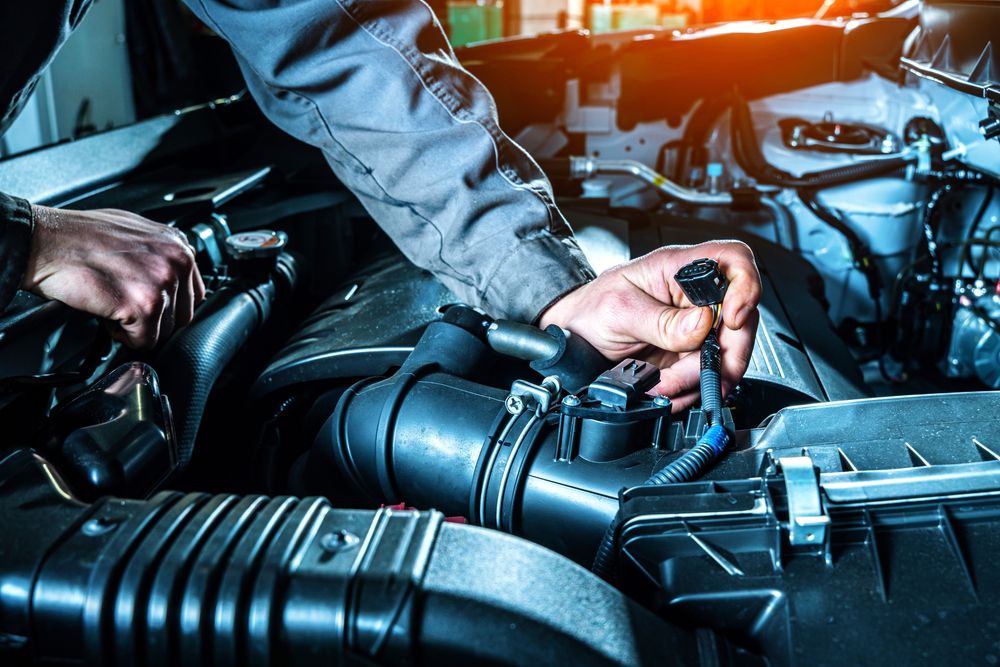 Mechanic replacing MAP sensor in a car
Mechanic replacing MAP sensor in a car
A Bad MAP Sensor
The MAP sensor (mass air flow) is part of the engine's electronic regulatory system.
It sends a reading of the air pressure in the intake unit to the powertrain control module to regulate the air to fuel mixture ratio.
As you might imagine, if this is malfunctioning, it will send incorrect signals to the PCM and potentially cause your car to lose power.
Other symptoms include engine misfiring, vibration while idling, and stalling.
Heated Throttle Valve
Your throttle valve handles the exchange of thermal and chemical elements in the engine and keeps it operating correctly.
It can be adversely affected by a buildup of gunk and grime and cause your engine to overheat by not releasing nitrogen from the car.
You'll have cause to suspect a heated throttle valve if you're experiencing rough idling, lousy acceleration, or overheating.
Bad Or Failing Fuel Pump
As you might imagine, the fuel pump pumps gas through the lines and prepares it to be injected into the combustion chamber.
If it's malfunctioning, your engine won't be getting enough power to work fluidly and may lose power.
Unfortunately, there are no unique symptoms that don't overlap with other typical engine issues, so rooting out a bad gas pump can be a nuisance; however, you can expect the engine to experience a lack of power and engine misfires, and spluttering when placed under demanding loads.
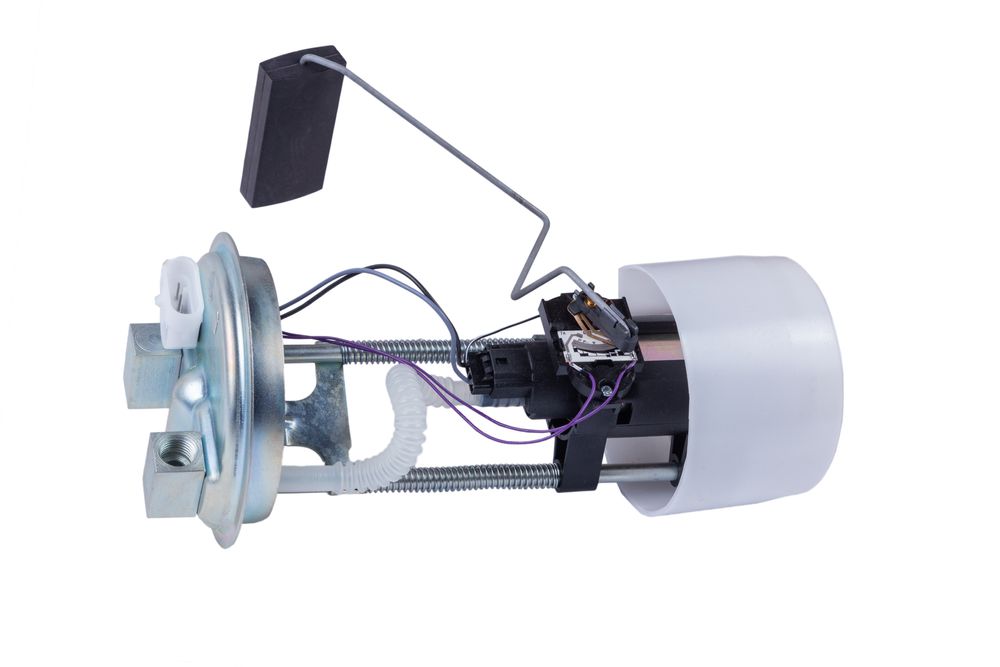 New fuel pump
New fuel pump
Air Leaks In The Intake Manifold
The intake manifolds keep everything airtight, but over time, the gaskets can wear out, or the manifold itself can crack, causing various issues that negatively affect the air to fuel ratio.
These include rough idling, overheating, poor acceleration, coolant leaks, or thin, milky engine oil.
The Ignition Module
The ignition module is an essential component that sends signals to help start the car.
If malfunctioning, these signals can cause the combustion process not to work correctly, leading to electrical shorts or interrupted signals.
These signals can cause the engine to misfire, potentially leading to a loss of power.
The ignition module is also subject to dirt or fuel interfering with the wiring on the airflow sensor.
This can cause the onboard electrics to incorrectly gauge the amount of airflow, causing problems starting the car.
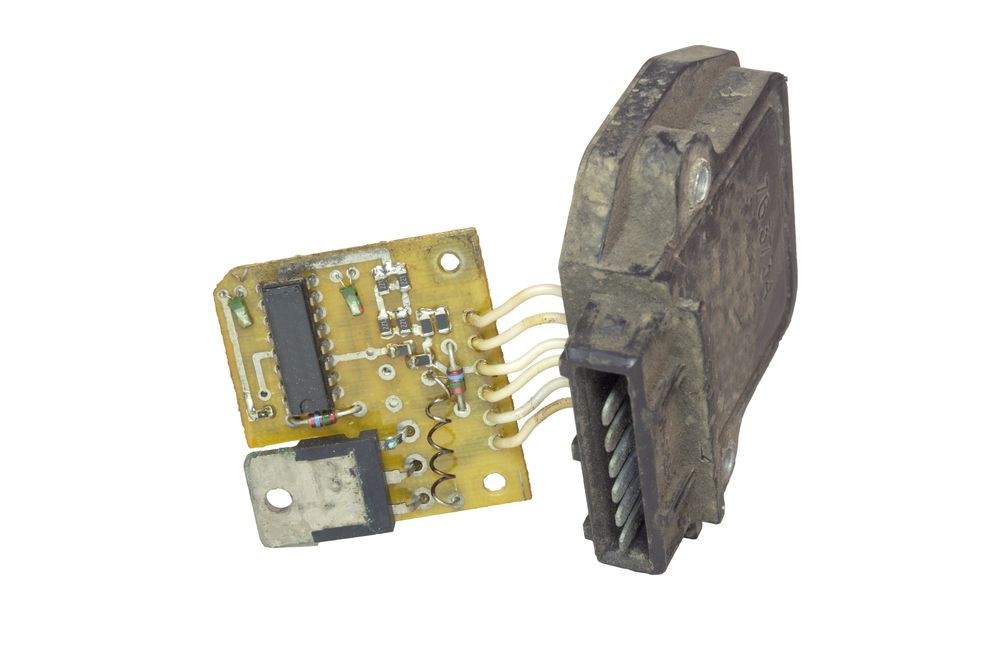 Old ignition control module
Old ignition control module
Failing Fuel Pressure Regulator
The fuel pressure regulator helps regulate fuel that goes through to the engine.
A faulty one will begin malfunctioning before it goes entirely on the fritz. You'll notice frequent misfires with a faulty regulator due to the offput air to fuel ratio and leaks.
You may also notice a black exhaust smoke or your engine seeming less efficient and losing power.
Bad Catalytic Converter Or Oxygen Sensor
The catalytic converter is a part of your exhaust system that helps reduce emission from your vehicle.
Still, if it malfunctions, it might cause a backlog of exhaust fumes in the engine, potentially causing it to overheat and subsequently lose power.
Converters are usually good for up to 150,000 miles, so it's not a common issue.
In a similar vein, the oxygen sensor helps improve the engine's efficiency and reduce emissions.
A bad sensor can result in your mixture is rich (too much fuel) or lean (too much air).
If the oxygen sensor is off, the computer may guess the amount of oxygen needed incorrectly, causing your engine to overheat, idle roughly, or have poor fuel economy.
Small Gaps On Valves
Valves are crucial in cars to regulate how much air and fuel get into the cylinders.
Bad valves can mess up your air-to-fuel ratio, causing your engine to misfire, rough idle, or be less efficient overall.
Your engine may lose power altogether due to leakage and compression issues.
You'll notice lots of exhaust smoke when firing up your car and a popping noise when you accelerate.
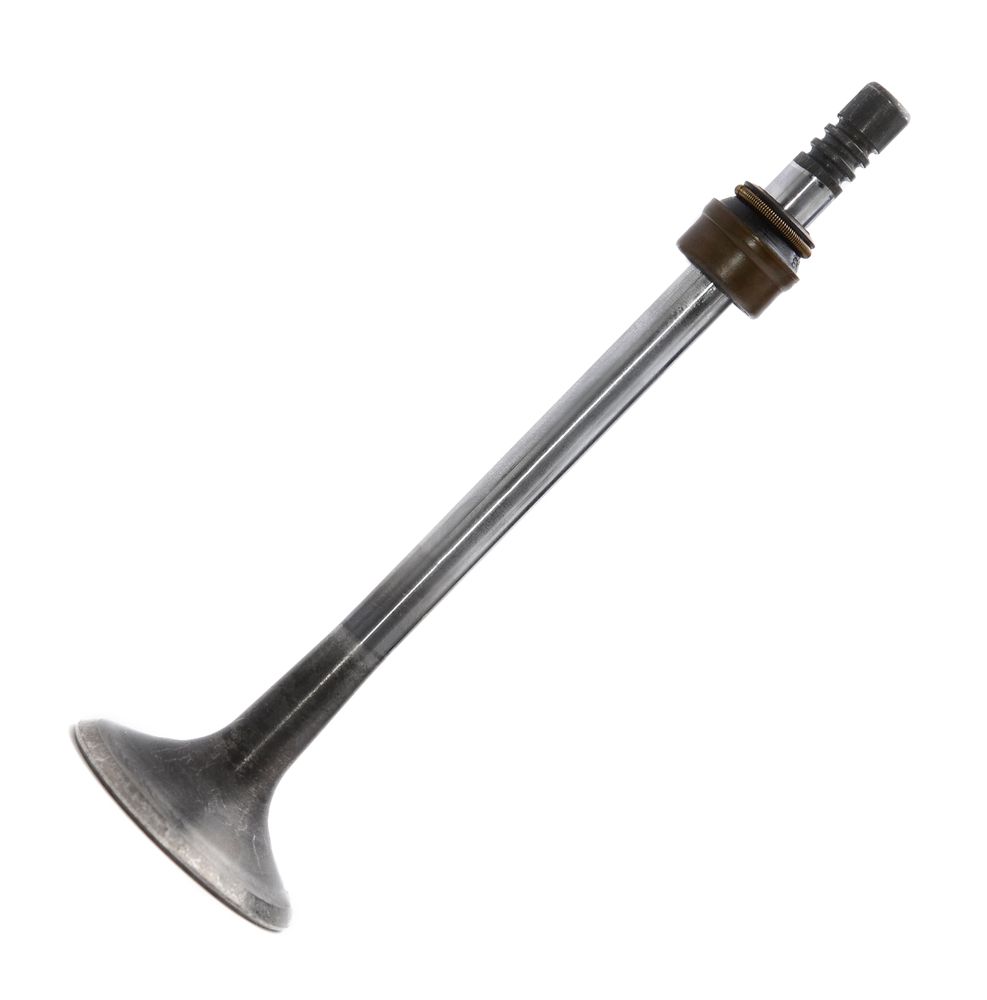 Engine valve
Engine valve
A Failing Turbocharger
A turbocharger, or turbo system, boosts engine power by improving fuel efficiency and providing more power.
However, in bad turbos, the fuel exhausts are bad, causing a loss of power, particularly when accelerating.
A whirring or whining noise emanating from your engine is another symptom of a bad engine.
A Bad Or Failing mass air flow Sensor
The mass air flow symptom controls the amount of air delivered to the engine based on how you accelerate.
A bad mass air flow sensor will cause poor performance from your engine, especially when accelerating.
A bad starting engine, poor fuel economy, rough idling, and hesitation during acceleration are signs that your mass air flow sensor is malfunctioning.
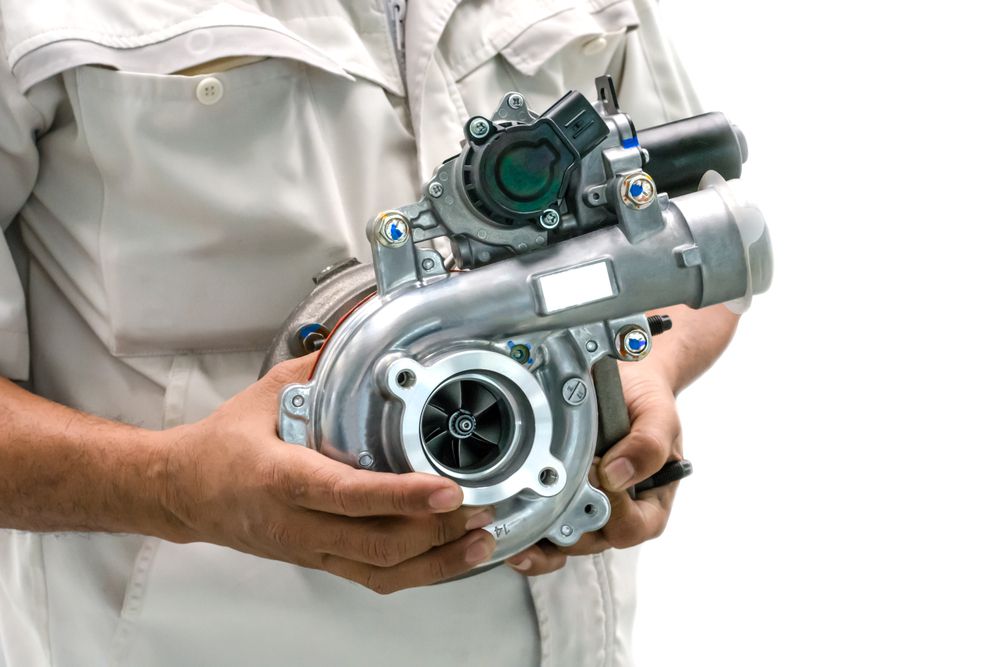 Turbocharger in mechanic's hands
Turbocharger in mechanic's hands
Bad Coolant Temperature Sensor
The engine coolant temperature sensor measures the temperature of the coolant, allowing the engine control module to adjust the air-fuel mixture appropriate to the temperature.
When this is off or damaged, you'll notice higher fuel consumption, the engine overheating when idle, and black smoke.
Conclusion
As it turns out, many engine issues can cause your car to lose power when it gets warm. Most of them boil down to an imbalance in the air to fuel ratio or improper management of exhaust fumes, causing the engine to overheat or not get enough power.
For most of these issues, your check engine light will be on, giving you an excellent reason to take a look at your engine.
FAQ
Why Does My Car Feel Like It's Losing Power When Accelerating?
Several issues can cause your car to lose power when accelerating.
Many involve mishandling the air-to-fuel ratio needed or the amount of fuel input into the combustion chamber to provide enough power to the car.
The mass air flow sensor is a likely culprit since it handles information regarding how much airflow your engine needs when accelerating.
When malfunctioning, the sensor can send incorrect or delayed signals to the onboard electronics, causing hesitation or a loss of power when accelerating.
Why Would My Car Suddenly Lose Power While Driving?
Cars are complex machines with a lot of moving parts.
Quite simply, a car losing power while driving usually boils down to a bad air-to-fuel ratio not providing enough power for driving.
This can be caused by anything from a bad valve causing leakage to a backlog of exhaust fumes overheating the engine.
Due to the built-in safety measures in an engine, if something goes wrong, there are safeguards to shut off or reduce the power in the engine so that it doesn't cause any harm to the driver.
Even so, a sudden loss of power while driving or a check engine light is a good cause to take your car in for inspection.